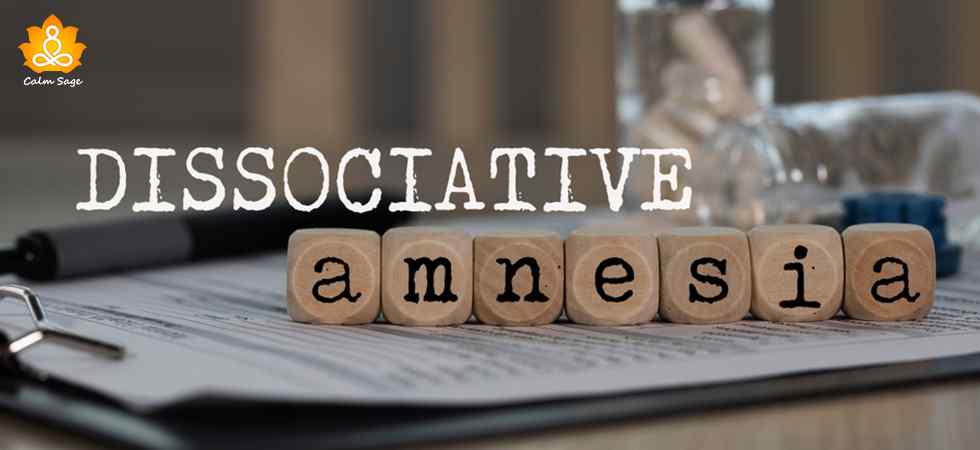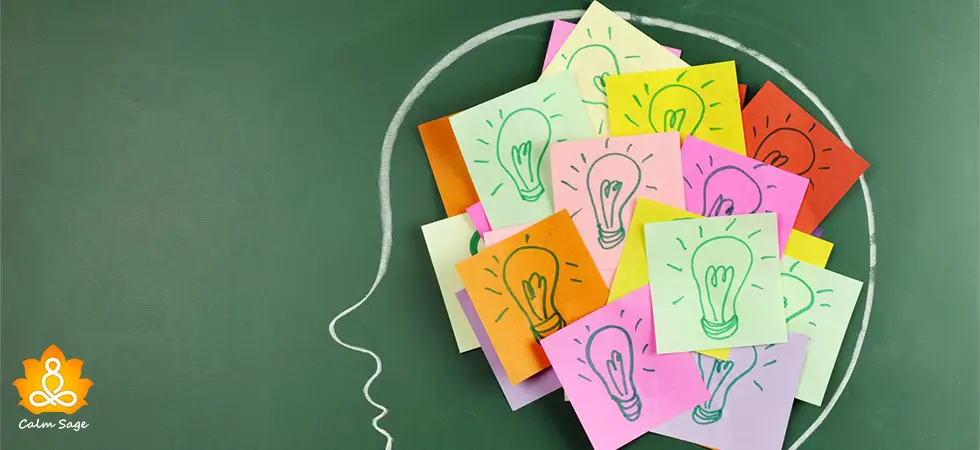All You Need To Know About Dissociative Amnesia Disorder

Memory loss can be mentally threatening. When memory loss results from trauma or stress, it can result in various mental health issues such as amnesia, dementia, or brain injury.
In today’s blog, we are going to specifically talk about dissociative amnesia. Dissociative amnesia causes the inability to remember important information. Amnesia occurs periodically which can be sudden and can last for hours, days, or weeks.
In this blog, let’s explore what is dissociative amnesia disorder, its types, symptoms, causes, and treatment. So, let’s get started!
What is Dissociative Amnesia Disorder?
Dissociative amnesia is a form of dissociative disorder that causes the inability to remember important information about life. It is generally caused by experiencing a traumatic or stressful event.
It also revolves around the inability to recall personal information, specific events, or aspects of identity. It is a rare type of mental health condition. Research shows that it affects about 2.6% of females and 1% of males in the USA.
During severe cases of dissociative amnesia disorder, an individual might forget their family, friends, or history. In some cases, it can also be related to dissociative fugue. Studies show that it can also be related to childhood abuse, neglect, or trauma.
Types of Dissociative Amnesia
Dissociative amnesia is a rare condition but still, it is known to be the most common type of dissociative disorder. Sessions of amnesia can go beyond normal forgetfulness and can be extensive.
People who experience dissociative amnesia are often traumatic or sensitive in nature. According to the “Diagnostic and Statistical Manual of Mental Disorder 5th Edition”, there can be different types of amnesia:
-
Continuous
A continuous type of dissociative amnesia is experienced when a person forgets every new event that occurs regularly. Psychologically, a traumatic event triggers the continuous pattern of forgetting.
-
Dissociative fugue
Dissociative fugue is a severe type of dissociative amnesia that revolves around unexpected and sudden travel from a personality in a confused and bewildered manner.
-
Generalized
Generalized amnesia is a rare type that results in complete forgetfulness of personal identity and experiences. People with this type of amnesia sometimes also forget previously learned skills.
-
Localized
Localized amnesia is experienced when an individual is unable to recall a specific series of events. This results in a memory gap and can be related to trauma or stress.
-
Selective
Selective amnesia is experienced when someone loses memory for a certain period. During this type of amnesia, localized or selective amnesia can be experienced.
-
Systematized
Systematized amnesia is experienced when memory loss is related to an individual or specific event.
Symptoms of Dissociative Amnesia
One of the major symptoms of dissociative amnesia is the inability to remember important information.
In several cases, an individual is not aware of their memory loss, due to which they can appear flustered or confused. Below listed are some other common types of symptoms of dissociative amnesia:
- Inability to remember important information such as name, work, and more
- Self-detachment
- Disrupted everyday functioning due to memory loss
- Forgetfulness related to specific periods
Causes of Dissociative Amnesia
Below are some of the common causes of dissociative amnesia:
- Witnessed or experienced a car accident or any other type of accident
- Beholding the death of a loved one
- Living through or witnessing a natural disaster
- Experienced a horrifying or near-death condition
- Victims of sexual, mental, or physical abuse
Differences between Dissociative Amnesia and Dissociative Fugue
Below are some of the common differences between dissociative amnesia and dissociative fugue:
Dissociative Amnesia |
Dissociative Fugue |
|
|
|
|
|
|
|
|
|
|
Diagnosis & Treatment of Dissociative Amnesia
If you think you or your loved one might be showing symptoms of dissociative amnesia, you can connect with a doctor nearby or a mental health professional. According to the DSM-5, diagnosis criteria for dissociative amnesia should be made by an experienced and registered mental health professional. To connect with a mental health professional through online platforms, click below:

Great for a large network of licensed therapists
-
$60 to $90/week, billed every 4 weeks
-
Therapy via messaging, phone, or live video chat
-
Flexible cancellation at any time
20% off your first month

Great for CBT Based therapists
-
$40/week, billed every 4 weeks
-
Therapy via messaging, phone, or live video chat
-
Specialization for CBT based Therapy
20% off your first month

Best for Treatment Plants
-
$60 to $90/week, billed every 4 weeks
-
Therapy via messaging, phone, or live video chat
-
Flexible cancellation at any time
$100 off your first month with code SPACE
Moving on to treatment, there are several treatment options available for treating dissociative amnesia that can help an individual to recover or recall their memories after dealing with the negative impacts.
Psychologically, proper diagnosis and treatment can help you recall the memories. Here are some treatment methods that are known to be effective for treating dissociative amnesia:
- Cognitive Behavioral Therapy (CBT)
- Creative Therapy
- Dialectical Behavioral Therapy (DBT)
- Eye Movement Desensitizing and Reprocessing (EMDR)
- Family Therapy
- Hypnotherapy
- Psychodynamic Therapy
Key Takeaway: Coping with Dissociative AmnesiaPsychologically, memories lost can be recovered with effective treatment options. Along with the therapy, here’s how you can make your recovery journey more healing and effective:
- Learn stress management techniques
- Seek social support
- Stay connected with a loved one, family member, or friend
- Join support groups
- Maintain a journal
- Create a comforting and safe place to allow memories to return
I hope this blog helps you with everything you wanted to know about dissociative amnesia disorder. For more such content, connect with us through all social media platforms.
Thanks for reading!




















